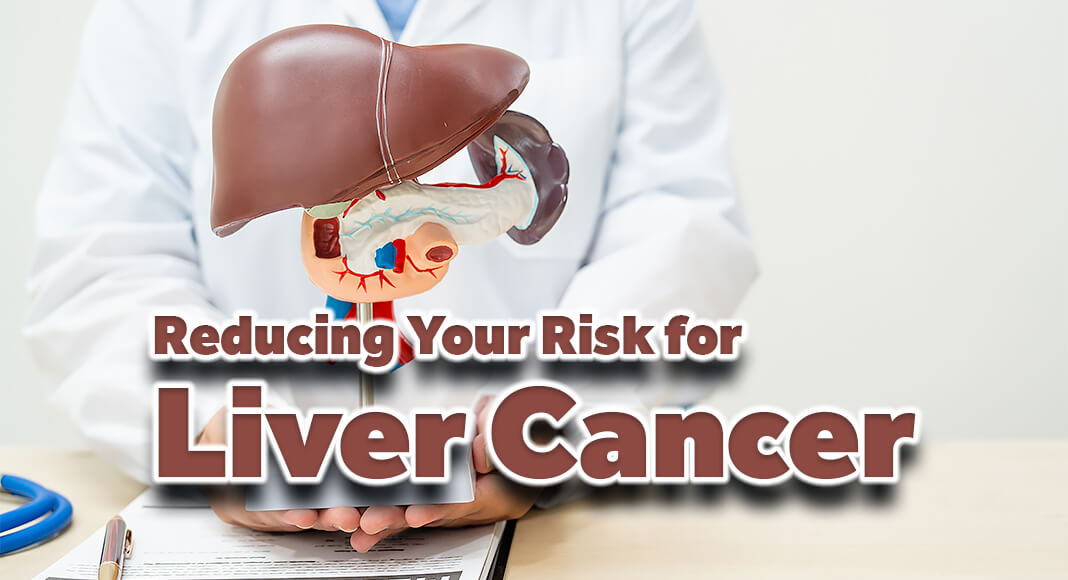
Mega Doctor News
By Joseph Kim, UK Markey Cancer Center surgical oncologists / University of Kentucky
Newswise – LEXINGTON, Ky. — Liver cancer is the sixth leading cause of cancer death in the U.S. The most common type of liver cancer in adults is hepatocellular carcinoma (HCC), and men are more likely to develop HCC than women. It typically develops in people with long-lasting liver disease caused by hepatitis virus infection or cirrhosis. In many cases, liver cancer is a preventable cancer, so raising awareness about prevention is important.
What are the risk factors?
There are several risk factors associated with developing liver cancer, including:
How can I prevent liver cancer?
There are a few steps you can take that research has shown can reduce your risk of liver cancer.
Get the hepatitis B vaccine: The hepatitis B virus attacks the liver. Many infected people don’t experience any symptoms until decades later, when the disease has progressed. It’s often called the “silent epidemic” for this reason.
Most people get a vaccine to prevent hepatitis B infection when they’re newborns. Research has shown that this vaccination lowers the risk of liver cancer in children. It is not known yet if this vaccination also lowers the risk of liver cancer in adults. The vaccine is also available to adults in a different dosage.
Get treatment for chronic hepatitis B infection: The treatment for chronic HBV infection can include interferon and nucleos(t)ide analog therapy. These two treatments may reduce your risk of developing liver cancer.
Preventing the spread of hepatitis C: There is no vaccine for HCV, but there are treatments that can cure most people. Most new infections progress to long-term infections.
The best way to prevent HCV is by avoiding behaviors that can spread the disease, like sharing needles or syringes, engaging in sexual activity with a person who’s infected with HCV or getting unregulated tattoos or body piercings.
Testing is the first step to know more about your health. If you have HCV, talk to your doctor right away to start treatment.
Maintaining a healthy liver: Cirrhosis is severe scarring of the liver and can be caused by hepatitis or chronic alcoholism. The damage generally can’t be undone, but, if caught early, can by treated and further damage can be limited.
Moderating alcohol use: Cirrhosis caused by heavy alcohol use is a risk factor for liver cancer. Liver cancer can also occur in heavy alcohol users who do not have cirrhosis.
People who are heavy alcohol users with cirrhosis are 10 times more likely to develop liver cancer than heavy alcohol users who do not have cirrhosis.
Quit smoking: In addition to alcohol use, cigarette smoking has been linked to a higher risk of liver cancer. The risk increases with the number of cigarettes smoked per day and the number of years the person has smoked.
If you have any questions about your current risk factors for liver cancer, talk to your primary care physician about your options.
UK HealthCare is the hospitals and clinics of the University of Kentucky. But it is so much more. It is more than 10,000 dedicated health care professionals committed to providing advanced subspecialty care for the most critically injured and ill patients from the Commonwealth and beyond. It also is the home of the state’s only National Cancer Institute (NCI)-designated Comprehensive Cancer Center, a Level IV Neonatal Intensive Care Unit that cares for the tiniest and sickest newborns, the region’s only Level 1 trauma center and Kentucky’s top hospital ranked by U.S. News & World Report.
As an academic research institution, we are continuously pursuing the next generation of cures, treatments, protocols and policies. Our discoveries have the potential to change what’s medically possible within our lifetimes. Our educators and thought leaders are transforming the health care landscape as our six health professions colleges teach the next generation of doctors, nurses, pharmacists and other health care professionals, spreading the highest standards of care. UK HealthCare is the power of advanced medicine committed to creating a healthier Kentucky, now and for generations to come.








